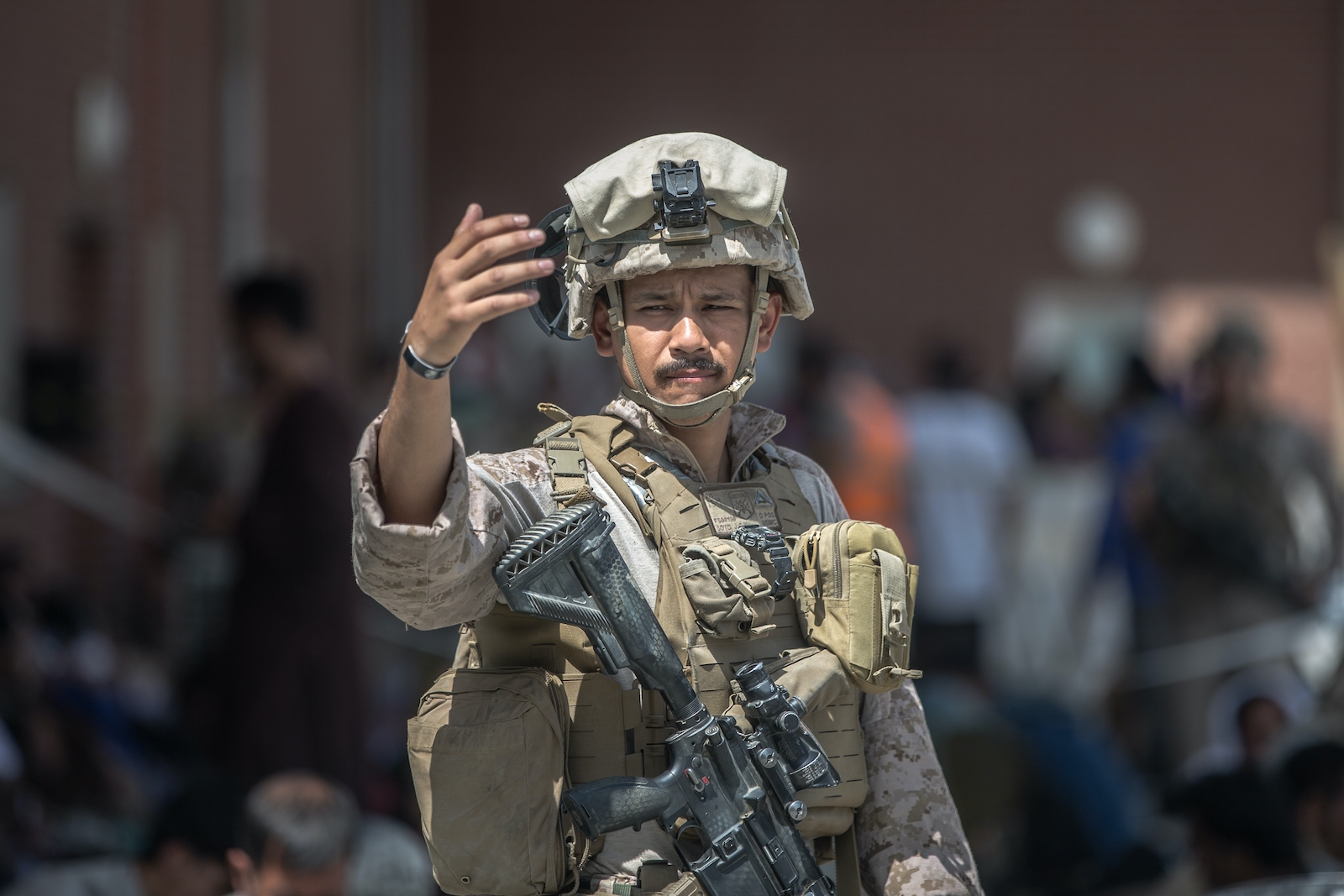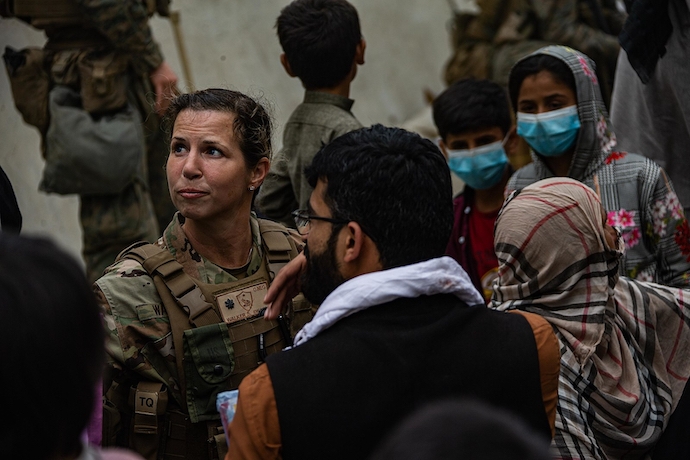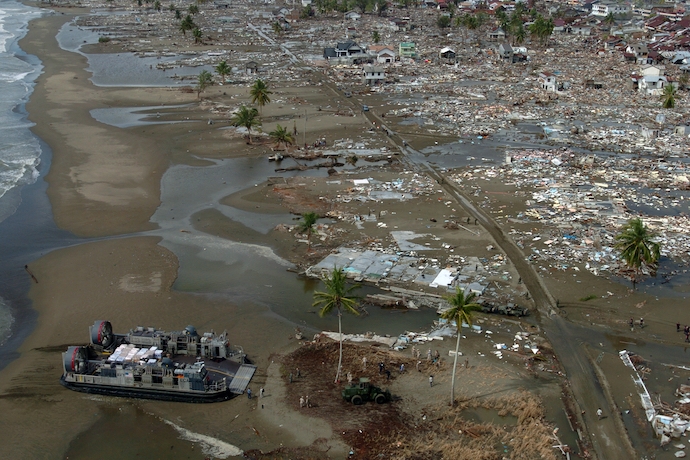
Learning the Right Lessons from the Post-9/11 Era
I fear that we may learn the wrong lessons from the last 20 years. I worry, given the oscillating nature of American foreign policy, that the pendulum is once again swinging in an isolationist direction. America is not stronger when it withdraws from world affairs; neutrality or apathy are not moral positions. The power of the American example, while notably diminished by the interventions in Afghanistan and Iraq, remains a potent force and a potential difference-maker in places like sub-Saharan Africa, where it still carries considerable sway.
The U.S. should not retreat into its shell, but it should re-think the way it uses its power and influence. Rather than seeking to topple or undermine hostile regimes with its military might, it should shore up existing, fragile democracies, relieve suffering when it is within our power to do so, and protect human rights on a broad, unflinching, even uncomfortable basis. For now, we seem to be of one mind in foreswearing interventionist wars, and this is a good thing. But we should not lump all foreign intervention into the same basket as active American presence in the international arena can still be vital for a more liberal, egalitarian, just world if used correctly and judiciously.
Liberal democracy remains the best form of government that the world has yet found, and it should be actively promoted, just not at the end of a gun. Unfortunately, the aforementioned 20-year wars effectively squandered the goodwill, prestige, and capital that the victory in the Cold War afforded the U.S. for the subsequent decade-plus that followed. Imagine what the U.S. could have accomplished had it used the resources spent on these ill-advised invasions on shoring up liberal democracies in Eastern Europe or sub-Saharan Africa.

Both of these regions saw democratic flowerings in the 1990s in the wake of the Cold War. Eastern Europe threw off the shackles of communism and embraced democratic capitalism with great enthusiasm; meanwhile, sub-Saharan Africa ushered in a new era of constitutionalism which enshrined key institutions in name, if not always in practice. The Arab Spring, a decade later, represented another massive missed opportunity to support democracy promotion of a homegrown, authentic movement toward representative and pluralist politics. I fear that hindsight and history may not be kind to the generation of American leaders who dropped the ball and let these opportunities slip away.
What if we had strengthened our NATO alliances instead of spitting in some of their faces as we embarked on the unilateralist pursuit of a neo-conservative vendetta against Saddam Hussein? American moral standing, one hopes, would not have taken the associated battering of our deplorable policies related to “enhanced interrogation,” Guantanamo Bay, and Abu Ghraib. Instead of cementing our alliances and buttressing liberal democracy, we went it alone, alienated our allies, and ignored the re-emergence of Russia and China as global antagonists and anti-democratic actors. We took our eye off the ball in regard to the long-term goals that would have made the world a safer, freer, and more prosperous place.
Rather than solidifying our hegemonic position with the weight of moral authority, we created a vacuum of international leadership in the 21st century into which multiple would-be competitors have now stepped. China and Russia have offered a competing ideology in the form of authoritarian capitalism, embracing our economic vision but with none of the guardrails imposed by democratic accountability or adherence to principles of human rights and dignity.

And so, we have concentration camps in China, as they equivocate with false equivalences of U.S. human rights abuses which, while real and deplorable, do not remotely rise to the level of the genocide currently being inflicted by the Chinese Communist Party against the Uyghurs. And we have a new emperor in Russia, who poisons and kills opposition leaders with seeming impunity, interferes in American elections, and steals territory when it suits his fancy. At the same time, formerly-democratic allies like Turkey, Hungary, and the Philippines have slid ever further into the clutches of self-serving despots. Americans adventurism may not have directly caused the democratic decline, but it certainly accelerated it by crippling the legitimacy of the world’s democratic lodestar.
So, if the failures of the 21st century resulted from a misguided sense of hubris and American exceptionalism, what is the way forward? The U.S. has always been at its international best as a benevolent power using its considerable might for good. We used our economic might to help rebuild Europe after the Second World War and solidified the trans-Atlantic partnership for the decades that followed. We used our military might to respond to global disasters like the earthquake in Haiti, typhoons in the Philippines, and cyclones in Myanmar. Make no mistake, while generous and generally altruistic in nature, these episodes were not without their concomitant benefits to U.S. reputation and interests.
#PEPFAR‘s pioneering #DREAMS Partnership has reduced new #HIV diagnoses among adolescent girls and young women by greater than 25% in nearly all geographic areas where it works. #PEPFARSavesLives @USAID pic.twitter.com/aXHJCQFYTh
— PEPFAR (@PEPFAR) September 9, 2021
Programs like PEPFAR built more goodwill in Africa than any number of troops patrolling villages in Iraq or Afghanistan. This is not to demean the work done by our individual soldiers, which required an enormous amount of sacrifice, courage, and heart, but our leaders, both civilian and military, put them in impossible positions. The Marines coordinating food distributions or the dissemination of hygiene and cooking kits in Port au Prince after the 2010 earthquake were also in a difficult environment, but there was no moral ambiguity, and the memory of American kindness lingers, albeit against the backdrop of earlier ill-advised interventions.
Learning the wrong lessons from past mistakes is by no means not a new phenomenon. Bill Clinton did not send U.S. troops to Rwanda because of the fallout from the Somalia debacle, and he cites this decision as his greatest regret as president. Whatever you think about Clinton’s results, he did care about and devote considerable thought and resources to places like Haiti and other developing countries.
Joe Biden is a leader similarly inclined to want to help. He should not eschew these instincts because of the failures in Afghanistan. He can lead a re-imagining of American power, used for good to combat the increasingly devastating effects of climate change and the tropical storms, hurricanes, and destructive weather events that are happening all over the world. He can establish America as the leader in vaccine distribution to the developing world, setting up factories within these regions and eliminating restrictive patents to get these vaccines out to regions like sub-Saharan Africa and South Asia that have distressingly low vaccination rates. And he can promote democracy abroad and restore American moral leadership.
Programs like Voice for America, the Peace Corps, and many USAID-funded programs should be ramped up in a new push for the type of humane, human rights-based approach that was touted upon Biden’s ascension to the presidency. Though they are difficult and thorny, we should be involved in the world’s worst complex humanitarian emergencies in Yemen, Syria, and Ethiopia as a moral force supporting the international community’s efforts and as a potential arbiter and peace-maker.
One of the most shameful legacies of the post-9/11 era was the xenophobia and anti-Muslim bias that it produced. The nationalism that 9/11 fomented is inextricably linked with the rise of the nativist, racist populism that currently plagues American politics. A strong competing vision to this nationalist challenge would be an internationalist, humanitarian foreign policy that saw the U.S. emerge as an ethical foreign policy leader that put human welfare first. That used our considerable powers for good. That engaged with the world instead of hiding behind the oceans that have always separated, protected, and insulated us. Our national spirit, when channeled correctly, is better than that, and our purpose should also be better. Let’s learn the right lessons from the failures of the last 20 years and embrace a better vision and a more enlightened way forward.

